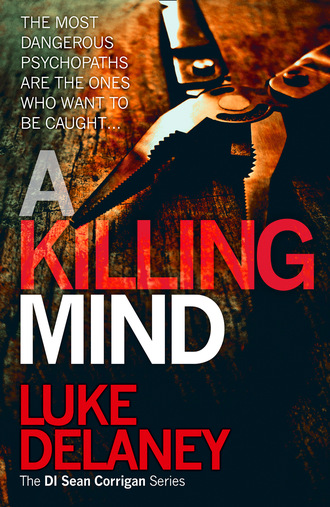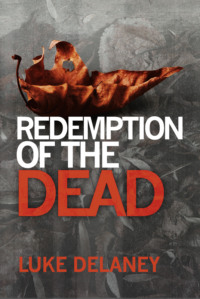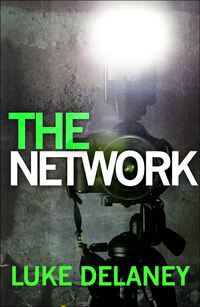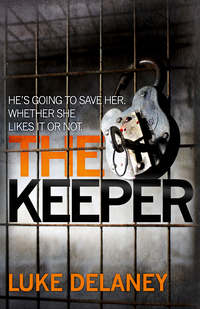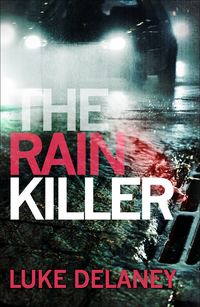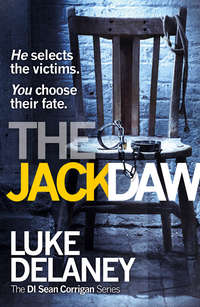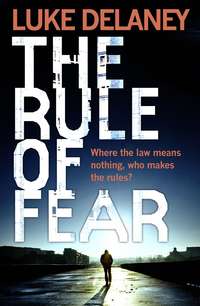‘Speaking of investigations …’ Featherstone appeared to change tack, ‘you should know that this will be my last.’
Sean leaned back in his chair. ‘Oh,’ he managed to say. He liked and trusted Featherstone. With him gone, there would be no protective buffer between him and Addis. Worse still, Addis could put someone else in charge of overseeing Sean and his team. Addis’s own man or woman. His own gamekeeper. ‘How so?’
‘Time for me to call it a day, Sean,’ he told him. ‘I’ve done more than my thirty years. Could have gone a couple of years ago. Was clinging on in the hope of making it to Commander, but it’s pretty clear that’s not going to happen. Every time it looks like it might, I get passed over by some graduate on accelerated promotion. Who gives a fuck if they don’t know their arses from their elbows, right?’
‘Will you be replaced?’ Sean asked.
‘You mean will you get a new boss?’ Featherstone smiled, sensing Sean’s concern. ‘Who knows? That’s Addis’s call.’
‘Great,’ Sean moaned.
‘You’ll survive,’ Featherstone assured him. They were silent for a while before he spoke again. ‘I was meaning to ask: how’s DS Donnelly getting on?’
‘Dave?’ Sean asked, confused.
‘Since the shooting,’ Featherstone added. ‘Not an easy thing to take a life.’
‘If he hadn’t shot Goldsboro,’ Sean reminded him, ‘Goldsboro would have shot me. Dave’s got nothing to feel … guilty about.’
‘We don’t all process these things the same way,’ Featherstone told him. ‘We don’t all have your … clarity of thought.’
Sean knew what he meant: if it had been Sean who’d pulled the trigger and killed Jeremy Goldsboro – the suspect in their last major investigation – he would have felt no guilt. It would simply have been something he had to do. ‘Well, the inquiry concluded it was a justifiable shooting. I think we’ve all moved on.’
‘Good,’ Featherstone replied, though he seemed less than convinced. ‘Well, speaking of moving on,’ he added, getting to his feet, ‘time I wasn’t here. Good luck with this one.’
‘Thanks,’ Sean replied.
‘Oh, one last thing,’ Featherstone turned at the door. ‘Addis wants Anna Ravenni-Ceron to work alongside you on this one. Given the nature of the killings, he feels the input of a psychiatrist would be useful. Since you’ve worked with her before, he thought best to stick with her.’
Sean felt an instant stab in the heart and a tightening in his stomach. He’d barely seen her in over a year, but his feelings about Anna remained confused. The only stability in his life came from his family and his job. Anna was a threat to both. ‘Fine,’ he answered without elaborating.
‘Regular updates would be appreciated,’ Featherstone told him as he left. ‘And watch out for the press.’
Sean’s eyes followed Featherstone across the main office and through the exit before he took a single photo from each file and slumped back in his chair – looking from victim to victim. The more he looked, the more he was sure the killer’s motivation was the act of killing. For some reason he felt compelled to kill.
Again Sean found his thoughts turning to Sebastian Gibran. He threw the photographs back on to his desk and cursed under his breath. ‘Shit.’
David Langley sat at his desk in the manager’s office of the Wandsworth branch of Harper’s Furniture store. Forty-two years old, six foot tall and muscular, he looked fit, tanned and handsome in an everyday way, short brown hair pushed back from his face to show off his deep green eyes. The office was hidden away from the customers who patrolled the showroom outside looking for bargains in the seemingly never-ending ‘All must go!’ sale, the office was crammed with cheap, utilitarian furniture, filing cabinets and computer equipment. The Christmas decorations had been removed from the showroom on 2 January, but a few tattered and depressing remnants still hung in the office.
Anyone who looked in through the office’s only door would have seen Langley facing forward, typing away on his keyboard like a man hard at work. He’d strategically positioned his desk so that no one could sneak up behind and look over his shoulder at the computer monitor. If they had, they would have seen that instead of checking stock levels or placing orders, he was searching the internet for news of last night’s murder of a homeless man in Southwark. To his intense frustration, only the local press carried any mention of the killing. The removal of the victim’s teeth seemed to have generated some interest, but there was no mention of the missing fingernails. He assumed that detail had been deliberately withheld by the police, so they could eliminate crank callers claiming responsibility for his unique handiwork. Planning and carrying out the killing had been sweet enough, but now he craved the fear and awe that only media attention could give him.
Disgusted, he gave up the search for in-depth coverage – the coverage he deserved. He told himself he shouldn’t be surprised his greatness had not been recognized. Only a blessed few were gifted enough to see in these two early works the blossoming of his special talents. But he had no doubt that his legacy would surpass everything that had gone before – even if he had to rub their faces in it before he was truly appreciated.
Almost without thinking he began to type the names of some of the gifted few into the search engine – those serial killers who had achieved fame on a global scale. He bit his lip to suppress his rising jealousy and anger. Why should they have been given so much coverage when he received so little? Could it be that the police had failed to make the connection? Fools! How easy could he make it for them? What would he have to do to make it more obvious? Cut out their eyes as well?
Though he tried to resist, it wasn’t long before he typed in the name of his most revered and hated rival: Sebastian Gibran. Several years had passed since Gibran had been sent to Broadmoor, but barely a month went by without yet another documentary devoted to him or another true-crime paperback trying to explain his compulsion to kill or speculating how many victims he’d claimed. Most pundits came to the same conclusion: the final tally would never be known. So varied were his methods of dispatching his victims, some would inevitably have been attributed to others, some would remain forever unsolved.
That was where he and Gibran differed. That’s what made his work superior. Where Gibran tried to hide his crimes, or at least his responsibility for them, Langley was proud of his work. He wasn’t afraid of the police or anyone else knowing these murders were the work of one man, and he knew the day would come when he’d be caught or, better yet, surrender himself to custody before he was cornered. After all, what was the point in creating such a storm of infamy if he could never stand in front of the world’s press and drink in the acknowledgements that he was the best ever? The most feared ever.
Unlike Gibran, who had settled for terrifying individual victims, he would terrorize an entire city. The world barely knew of Gibran until his capture, but soon everyone in London would be living in fear of David Langley. He would be the new bogeyman – the vampire in the night – the werewolf in the forest – the monster under the bed. His power would hang over the city like a vast black cloak. Soon no one would be talking about Sebastian Gibran any more.
The door burst open without warning, making Langley jump in his seat as his fingers scrambled to close down the browser and open an accounts file. ‘Christ’s sake, Brian,’ he complained as he recovered – his accent tainted with a trace of London. ‘Don’t you ever knock?’
‘Why?’ Brian Houghton asked, his beady eyes sparkling with mischief behind his thick, heavy-rimmed spectacles. ‘You watching porn again?’
Langley couldn’t stand his short, chubby assistant manager. Houghton’s jovial, over-familiar demeanour inevitably gave rise to thoughts of slashing his throat, maybe taking a pair of pliers to those nasty yellow teeth of his. Ever since he was a teenager, he’d been entertaining similar thoughts about any number of people who’d crossed his path. Then those thoughts had turned into visions – signs of what he was destined to be. And now the time had come to act.
‘I won’t tell if you won’t,’ Houghton continued cheerfully. ‘Just remember to clear your search history. I hear the area manager’s a real bitch.’
‘She is,’ Langley sighed, disinterested. ‘I’ve met her. Listen, did you want something?’
‘I need a bit of paperwork from the cabinet,’ Houghton explained.
‘Then don’t let me hold you up,’ Langley told him, losing patience.
‘Yeah, sure,’ Houghton shrugged and made his way to one of the tall cabinets before noisily pulling a drawer open and searching inside. ‘So,’ he asked, turning back to Langley. ‘Is it true then? Did you almost get the sack for banging some young assistant?’
Langley winced at the memory. It had been embarrassing and beneath him. How dare they insult him with their innuendos and accusations. ‘She was twenty-three,’ he replied through gritted teeth.
‘Sounds young to me,’ Houghton leered. ‘Fair play to you, I say, but head office frown on that sort of thing. They don’t like the managers messing around with the junior staff.’
‘Like no one at head office ever does it,’ Langley complained, the bile of jealousy and hatred rising in his throat.
‘Yeah, but that’s head office,’ Houghton crowed. ‘Law unto themselves. Besides, I heard it wasn’t your first misdemeanour. Like the young ones, do you? Can’t blame a man for that.’
‘Perhaps you shouldn’t believe everything you hear,’ Langley warned him.
‘Just saying. I’ve heard the rumours.’
‘Rumours are all they are,’ he insisted.
‘If you say so,’ Houghton smirked as he pulled some forms from the cabinet and slammed it shut.
‘You’ve only been here two weeks,’ Langley reminded him. ‘Maybe you should wind your neck in.’
‘Fair enough,’ he grinned. ‘I’ll let you get on then.’
‘You do that,’ Langley snarled as he watched Houghton trail from the room. Once he was alone he took several deep breaths to calm himself before reopening his browser, the screen instantly filling with the unsmiling face of Sebastian Gibran staring back at him.
Geoff Jackson parked his battered old Audi saloon in the visitors’ car park outside Broadmoor Hospital and immediately checked his phone for missed calls from his editor or network of informants that included everything from pimps to politicians. The display told him he was in the clear. He stepped from the car wincing at the various pains that stabbed at his body as he tried to stretch them away – looking over at the building site that would soon become the new hospital, spelling the end to the foreboding Victorian building that could never look like anything other than a prison. He’d heard it was going to be turned into luxury flats or something. He could only assume they would be sold to wealthy ghouls with more money than sense. ‘About fucking time,’ he muttered under his breath as he lit another cigarette – squeezing in one last smoke before entering the sterile smoke-free zone that Broadmoor along with every other building had become. He needed something to calm his excitement and fear before meeting the inmate he’d come to interview.
He pulled his trench coat tight around himself and walked across the wet and freezing car park under a leaden grey sky heading for the reception building. It seemed to him that every time he’d been here the weather had been as bleak as it was today. He tried to imagine Broadmoor in the sunshine, but somehow he couldn’t. After having his authorization letter for the visit scrutinized he was fed through several layers of security, including passing through a scanner and having a full and thorough body search before being led to an interview room and being told to make himself comfortable and wait. Thirty minutes later he checked his phone for the umpteenth time and was about to call for assistance when the door swung open and a large muscular man in his mid-thirties wearing a white nurse’s uniform filled the doorframe eyeing him and the room suspiciously. After a few seconds he finally spoke.
‘You here to see Sebastian Gibran?’
Jackson swallowed involuntarily before speaking. ‘Yes. Geoff Jackson, from The World newspaper.’
The big nurse merely nodded as he stepped further into the room, breaking right to reveal the man walking directly behind him – his hands secured to the restraint wrapped around his waist in soft leather bindings secured to his posey belt and handcuffs. He reminded Jackson of a prisoner on death row being taken to his execution, only unlike the deliberately overfed and sedated fatted cows of America’s final solution, the man in restraints looked athletic and strikingly strong. Like a leopard in human form. Jackson had heard about his strength before, but now, up close for the first time, he could actually feel it. Following Gibran into the room was an equally powerful-looking man, only this one wore an HM Prison uniform – such was the dilemma that was Broadmoor. Was it a hospital or a prison?
‘You have authority to interview this Broadmoor patient?’ the big nurse asked rhetorically.
‘I do,’ Jackson replied searching for his paperwork.
‘That won’t be necessary,’ the nurse assured him, keen to move on. ‘And you have agreed to this interview?’ he asked the man in restraints.
‘I have,’ the man answered, his cold, black eyes never leaving Jackson. His voice was calm and assured.
‘Mr Jackson,’ the nurse told him, ‘I strongly recommend that you have myself and Officer Brenan here throughout the interview – in the best interests of everyone.’
‘No, no, no,’ Jackson argued. ‘The agreement was that the interview is to be conducted in private. I’m a journalist and therefore anything I’m told is journalistic material and subject to journalistic privilege,’ Jackson reeled out the well-practised spiel. ‘This has all been arranged and agreed in advance with the hospital directors. The agreement was for the interview to be conducted in private – as I’m sure you have been informed.’
The big nurse took a deep breath as he looked back and forth from Jackson to the prisoner in restraints. ‘Very well,’ he submitted, ‘but we’ll be right outside watching everything on CCTV. If you need us, we’ll get to you fast.’
Jackson swallowed hard as he noticed the concern in the big nurse’s eyes. ‘Fine, so long as there’s no sound on the monitor,’ he managed to say while hiding his fear, ‘and no bloody lip readers either.’
The nurse ignored him. ‘In order to allow this interview to be conducted with no hospital staff present it has been necessary for the patient to consent to wearing restraints at all times. That consent has been given.’ He looked at the man in the leather handcuffs, who gave a single nod. ‘Sit down please,’ the nurse ordered. Gibran did as he was told and slid into a seat opposite the spot where Jackson remained standing, his eyes never leaving the journalist – studying him. ‘I’m going to remove your hands from the waist restraint now,’ the nurse explained, ‘and secure them to the table fastenings. If you resist in any way we’re authorized to use whatever force is necessary to make you compliant. Do you understand?’
‘I understand perfectly,’ Gibran answered politely, turning his wrists as much as he could to make it easier for the prison officer to release them. After a nod from the nurse, the officer stepped forward and released one arm, securing it to the table then doing the same with the other, before stepping back a little too quickly, betraying his fear.
‘He’s all yours, Mr Jackson,’ the nurse told him, ‘but remember – don’t get too close or touch the patient in any way. And under no circumstances are you to give him anything whatsoever. All items the patient receives must be submitted to the hospital staff first for clearance. Do I make myself clear?’
‘I know the rules,’ Jackson answered, trying to sound confident and in control, despite his pounding heart.
‘Very well,’ the nurse said, turning on his heels and leaving the room, closely followed by the prison officer. Jackson watched the heavy door being pulled shut and listened to the key turning heavy locks and he knew he was now alone with arguably the most dangerous killer of modern times.
‘Sebastian Gibran,’ Jackson struggled to speak, barely able to believe that he was alone in the room with Britain’s most notorious serial killer. ‘Thank you for seeing me. I can’t tell you how much it means.’
‘Geoff Jackson,’ Gibran ignored Jackson’s platitudes. ‘Chief crime editor for The World,’ he continued, referring to the red-top newspaper Jackson worked for.
‘Britain’s most read,’ Jackson couldn’t help himself saying, although he regretted it almost immediately.
Again Gibran ignored him, his black eyes searing into Jackson, probing him, until he suddenly smiled and seemed to relax – inhaling the tension in the room and replacing it with an atmosphere of cooperation in that way that only the truly powerful and self-confident can. ‘Well, I should congratu-late you on getting permission to see me, Mr Jackson. You appear to have succeeded where many have failed – and, believe me, many have failed, although I would never have agreed to meet them anyway. Half-baked novelists and playwrights looking for titbits to shock and scare the poor unsuspecting members of public. Can you imagine anything more tedious?’
‘I know a couple of the directors here,’ Jackson explained. ‘Promised I’d show this place in a good light, if I was allowed to meet you.’
‘I see,’ Gibran nodded.
‘You said you wouldn’t have seen the others who wanted to meet you,’ Jackson reminded him. ‘So why me? Why did you agree to meet me?’
‘Because you have a pedigree, Mr Jackson,’ Gibran told him. ‘You’ve earned the right.’
‘Please,’ Jackson told him, shaking the confusion from his head. ‘You can call me Geoff.’
‘No,’ Gibran consolidated his control. ‘Mr Jackson will do for now.’
‘Erm,’ Jackson wavered slightly, ‘if that’s what you’re comfortable with. You were saying – I have a pedigree?’
‘You interviewed Jeremy Goldsboro – correct?’
‘Yes,’ Jackson answered. ‘Yes, I did. While he was still at large and the police were looking for him.’
‘That must have taken great courage.’ Gibran’s eyes continued to scrutinize him. ‘To meet a killer. Alone.’
‘It was a great story,’ Jackson tried to explain. ‘A killer with a cause. A man of the people trying to fight back for the little man.’
‘Only it was a lie,’ Gibran reminded him. ‘He killed for his own satisfaction. Tell me, Mr Jackson, would you have still met him if you’d known he was really just a vengeful, jealous killer and not the man of the people he pretended to be?’
‘Probably,’ Jackson admitted.
‘Why?’ Gibran demanded.
‘It would have been a great story in any case,’ Jackson explained. ‘Perhaps even better. A unique insight into the mind of a coldblooded killer while he was on the loose and killing. It would have been huge anyway.’
‘And if you’d ended up becoming one of his victims?’ Gibran asked.
‘Wouldn’t have happened.’ Jackson smiled. ‘Whether I’m dealing with a killer with a cause or a mindless killer, it makes no difference. They’re not going to hurt me.’
‘Why?’ Gibran pushed.
‘If they’re talking to me, it’s because they want publicity,’ Jackson answered. ‘Why kill the person who’s going to give them what they want?’
‘Because not everybody does what’s expected of them,’ Gibran argued. ‘In some people the urge to kill overpowers everything else. Perhaps you should remember that.’
Jackson paused before answering. ‘Would you have?’ he asked. ‘Would you have killed me, if we’d met when you were free?’
Gibran leaned back in his chair, his restraints straining and creaking under the strain. ‘Maybe,’ he smiled, ‘but that’s because I’m mentally ill, Mr Jackson. That’s why I’m in here and not prison.’
‘Right, OK.’ Jackson nodded.
A silence spread between them before Gibran spoke again.
‘So what is it you want to ask, Mr Jackson? I should remind you that I can’t talk about the murder and attempted murder I was charged with.’
‘The uniformed cop and the woman detective,’ Jackson clarified.
‘Exactly,’ Gibran confirmed. ‘I may one day be deemed mentally healthy and fit for trial. It would be foolish of me to hand my enemies a stick to beat me with.’
‘By your enemies, you mean the police?’ Jackson asked. ‘Or more specifically Detective Inspector Corrigan?’
For a second all the fury and anger that burned deep inside Gibran flashed in his eyes, but he immediately dragged it back under control. ‘Corrigan is irrelevant,’ he dismissed the man who’d caught him. ‘What is it that you want me to tell you about, Mr Jackson?’
Jackson cleared his throat before he began. ‘Well, some people – quite a lot of people actually – believe you have committed many murders. That you are in fact one of the most prolific serial killers there’s ever been in this country.’ Gibran went to speak, but Jackson held his hand up to stop him. ‘Obviously I’m aware that even if this were true, you’d hardly be likely to tell anyone about it. But perhaps you would give me your thoughts on what it would be like if you were a serial killer. What do you think might motivate such a person? What would be going through their mind? How would they kill and not get caught? No need to mention any specific crimes that may have happened. We could keep it more … generic.’
Gibran considered him in silence for a few seconds. ‘I see,’ he eventually responded. ‘And what would you do with such … information?’
Jackson shifted in his seat before answering. ‘My intention is to serialize the interviews in the paper. One a week. Maybe more. We’ll see how it goes, but I believe readers will be fascinated.’
‘Even though I’m not discussing details of real crimes?’ Gibran queried.
‘Trust me,’ Jackson smiled. ‘The readers will fill in the blanks for themselves. It’s your … unique background that will sell it. The fact you’re locked up here in Broadmoor won’t hurt either.’
‘And how do you profit from all this, Mr Jackson?’ Gibran asked. ‘To increase your standing with your editor doesn’t strike me as sufficient motivation for a man like you.’
‘No,’ Jackson agreed, once more squirming uncomfortably. ‘The pieces in the paper would be largely to draw people in. A few weeks after they stop I’ll release the book of our interviews. The bigger picture. What it’s really like to be someone like you.’
‘Someone like me?’ Gibran questioned, leaning in as close as the table and restraints would allow. ‘How could you or your readers ever know what it’s like to be me?’
‘They might,’ Jackson argued. ‘If you tell them.’
Gibran leaned back in his chair before changing tack. ‘Why do you want to write a book about me when you’ve already had one published? One that contained a great many unsubstantiated allegations, I may add.’
‘Allegations made by the police,’ Jackson explained. ‘Not me. I was just reporting on the investigation, working on what the police gave me. There was no opportunity to put your side of things across. But there is now – if you want to.’
‘And why would I do that?’ Gibran asked. ‘Why should I care what the police or public think I am or what I’ve done? What makes you think they’re anything to me?’
Jackson knew Gibran would never be enticed into cooperat-ing by the chance of helping others understand what he was. Gibran existed to satisfy himself and no one else. Jackson knew his psychological profile well. Gibran was as pure a sociopath as had ever allowed themselves to be caught – totally incapable of feeling remorse or guilt. He’d most likely been that way since the day he was born – a killer created by nature or God. Not some sorry case of a normal man turned into a monster by tragic circumstances of child abuse or mental illness. He’d had a privileged background and an apparently happy childhood, although even then he probably knew what he really was. He was well educated and went on to have a successful career, a wife and children, yet it had all been a smokescreen, cultivated to provide cover for the real Sebastian Gibran: a psychopath who killed for the pleasure of killing.


